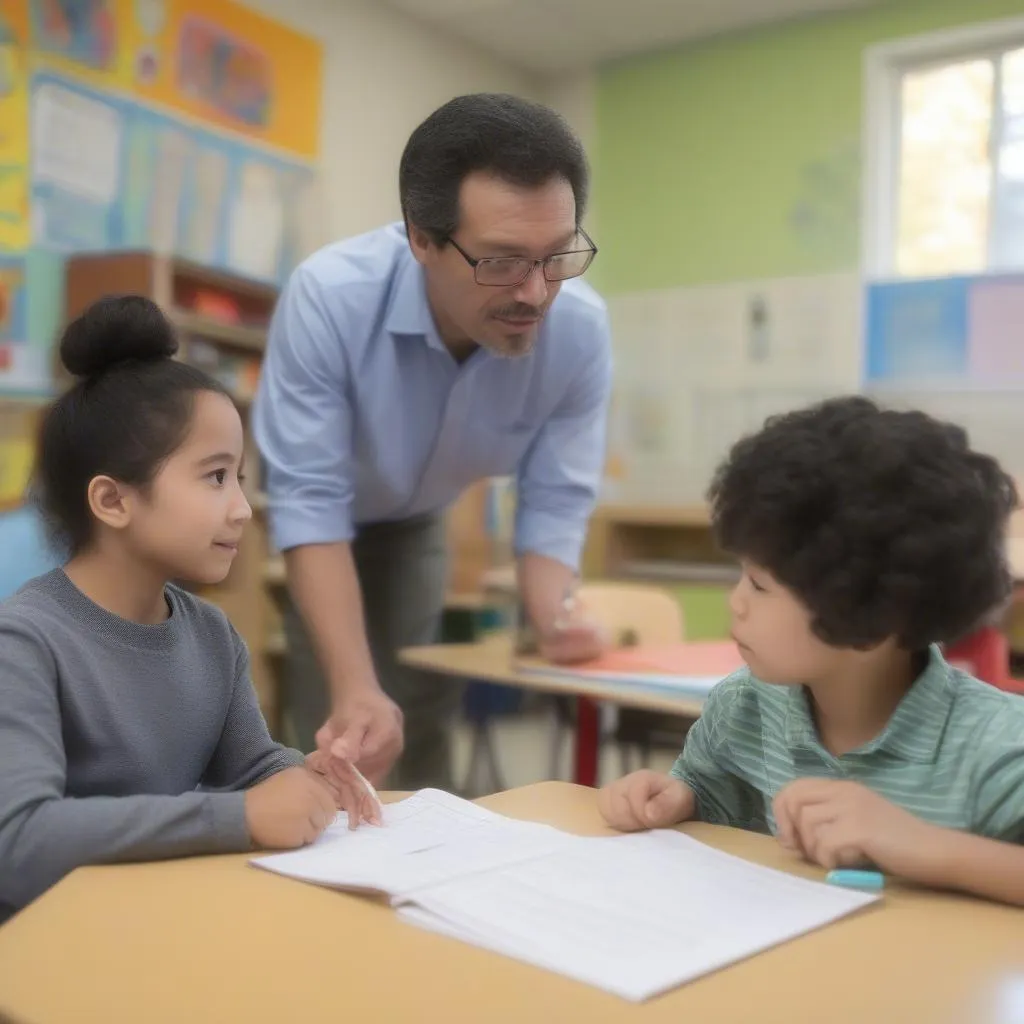“Children are like buds on a branch, knowing how to nurture them makes them grow quickly,” this proverb is a constant reminder to parents about the importance of nurturing their children from a young age. And in the journey of teaching children from their first steps, the kindergarten beginning-of-year report serves as an important intersection between teachers and parents, helping both sides better understand the child’s development in the preschool environment.
Kindergarten Report: Importance and Meaning
The kindergarten beginning-of-year report is a crucial document, acting as a bridge between the school and family. It helps parents understand their child’s learning situation in the new school year, while also helping teachers better understand the student’s family background to develop the most appropriate educational methods.
The Report’s Role for Parents
- Helps parents grasp their child’s learning situation in the new school year, especially the child’s strengths and weaknesses.
- Provides information about the school’s curriculum, helping parents understand the activities their child will participate in during the new school year.
- Creates opportunities for parents to communicate with teachers, addressing questions about their child’s learning.
- Helps parents see the school’s care and attention towards their child.
The Report’s Role for Teachers
- Provides information about the student’s family background, helping teachers better understand the child’s circumstances and abilities.
- Helps teachers develop educational plans suitable for each student, focusing on the child’s weaknesses to help them progress faster.
- Provides a basis for teachers to build good relationships with parents, creating consensus in educating the child.
Key Components of a Kindergarten Report
A kindergarten beginning-of-year report typically includes the following key components:
General Information
- School name, child’s class.
- Homeroom teacher’s name.
- Number of students in the class.
Child’s Health Condition
- Child’s general health status in the past period.
- Diseases the child has had.
- Child’s immunization schedule.
Child’s Learning Progress
- Child’s learning abilities in areas: language, mathematics, science, art, physical education, social skills, self-reliance.
- Child’s strengths and weaknesses in learning.
- Activities the child will participate in during the new school year.
Child’s Psychological and Emotional Development
- Child’s psychological and emotional state in the past period.
- Child’s relationships with classmates.
- Child’s daily habits at home and at school.
Teacher’s Recommendations
- Suggestions for parents on how to raise their children in the new school year.
- Advice for the child to make better progress in learning.
- Points to note in raising the child.
Kindergarten Report: FAQs
“How can parents understand the kindergarten report clearly?”
The kindergarten beginning-of-year report should be written clearly, understandably, friendly, and approachable to parents. Teachers should use easy-to-understand language, avoiding difficult professional terms. In addition, teachers should also incorporate real-life stories about the child in the report to help parents better understand their child’s situation.
“Should the kindergarten report include specific child evaluations?”
Teachers need to provide specific assessments of the child but should be gentle, positive, and encouraging. Teachers should focus on the child’s strengths and offer suggestions to help the child improve in their weaknesses.
“Effective communication strategies with parents?”
Teachers should use open, friendly communication methods, listen to parents’ opinions, and give parents the opportunity to share their concerns. Teachers should also prepare open-ended questions to encourage parents to interact and share more information about the child.
A Story about the Kindergarten Report
Little Tung was a very shy and quiet kindergarten student. During a meeting with Tung’s mother about the beginning-of-year report, the teacher noticed her worry about Tung being quiet and not participating in group activities with friends. The teacher shared with Tung’s mother about his strengths, such as high concentration, diligence in learning, and love for drawing. The teacher also encouraged Tung’s mother to create opportunities for him to participate in recreational activities such as playing games with friends, and participating in extracurricular activities so that he could become more confident and communicate better. After a while, Tung’s mother saw positive changes in him; Tung became more confident and participated in more group activities with his friends. Tung’s story shows the importance of open communication between teachers and parents in helping children develop comprehensively.
Kindergarten Report: Key Considerations
The kindergarten beginning-of-year report is not just a document for communicating information between school and family but also an opportunity to promote the comprehensive development of the child. Teachers need to accurately, honestly, and positively grasp the child’s situation to provide appropriate suggestions for parents. Parents should also actively participate in communication with teachers, ask questions, and share their concerns to work with the school in nurturing their children to become confident, active, and comprehensively developed individuals.
 Kindergarten student report
Kindergarten student report Teacher and parent communication
Teacher and parent communication
Contact Us
Do you have any questions about the kindergarten beginning-of-year report? Please contact us via phone number: 0372999999 or come directly to the address: 234 Hao Nam, Hanoi. We are always ready to help you!